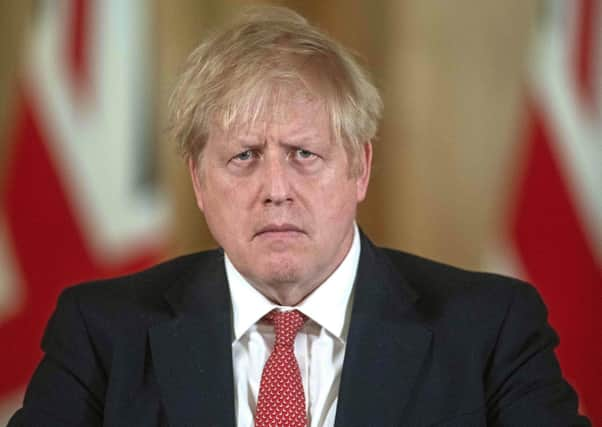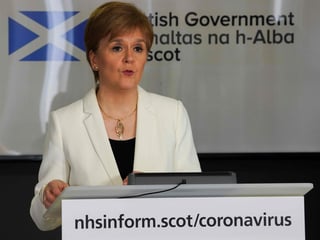Coronavirus: Here’s why politicians ignored scientists’ warnings and what we can do about it – Brian Wilson


For Prime Ministers and Presidents, ratings usually go up rather than down in times of crisis.
This may seem a paradox which involves a suspension of disbelief about how we got here in the first place. On the whole, public opinion tends to be generous and to give benefit of doubt to those with the unenviable task of leadership.
Advertisement
Hide AdAdvertisement
Hide AdThe question of testing is a case in point. It is a statistical fact that Scotland and the rest of the UK lag far behind other countries, notably Germany. All sorts of commentators are pointing fingers of responsibility for this allegedly fatal lapse in our collective response.
Then along come another set of experts, including Catherine Calderwood, our Chief Medical Officer, to tell us the focus on testing is a “diversion” and doesn’t matter all that much. Who is one to believe? On balance, we tend to accept that “we are where we are”, even if it is not quite where we should be.
Before he was struck down, Boris Johson hit a 74 per cent approval rating. Even more remarkably, Donald Trump has seen his ratings rise rather than fall in response to an erratic flow of denial and bluster which has been outlandish even by his own formidable standards.
In the short term at least, being on the telly morning, noon and night is good for a politician’s ratings – almost regardless of what they are saying. They are not unaware of this. In due course, more mature consideration will set in. But it is absolutely right to leave inquests and recrimination for another day.
I think it is permissible, however, to take a longer term retrospective on why we – and I mean most of the world – were so unprepared for what has beset us. In that respect, one really would like to think that things will never be the same again.
Specific ‘pandemic’ warning
It does not take much research to find that specialists in the field have been warning for years – since the Sars outbreak in 2003 – that a coronavirus epidemic has been a disaster waiting to happen. Yet there has been no global, political recognition of the immense danger we now know so well.
For example, one paper published in Nature Reviews Microbiology in 2016 warned: “The severity of the diseases caused by emerging coronaviruses highlights the need to develop effective therapeutic measures. Although several treatments for Sars and Mers... have been identified in animal models and in vitro studies, efficacy data from human clinical trials are urgently required.”
In the same year, an article for the National Academy of Sciences in the US reported on “Sars-like virus sequences isolated from Chinese horseshoe bats, the results indicating a significant threat... of direct transmission to humans”. The Sars-based vaccine approach had “failed to confer protection”, underlining the need for vaccine research “to prepare for a future CoV outbreak”.
Advertisement
Hide AdAdvertisement
Hide AdThere is a great deal in the same vein including specific warnings of coronavirus “pandemic”.
South Korea sets an example for world
It is impossible to avoid recognising that the scientific community was well aware of the likelihood that something like Covid-19 was coming down the tracks but found it impossible to get much done about it.
Why should this be? Why did governments continue to cut back on research in the light of evidence which was so freely available of potential disaster? The answer surely lies in the short-term nature of politics and reluctance to invest in prevention of an unprovable hypothesis rather than wait for it to be proven.
South Korea’s approach has won praise. It surely derives from having suffered an outbreak of Middle East Respiratory Syndrome (Mers) in 2015, not doing very well in coping with it, learning the lessons and knowing exactly what to do once Covid-19 appeared. No country can now fail to follow that example.
In future, the World Health Organisation should mean what its title suggests – with the power to co-ordinate and direct national governments to make the necessary investment in preventing foreseeable catastrophes. That would be a response appropriate to the scale of the present crisis. But will it happen...?
